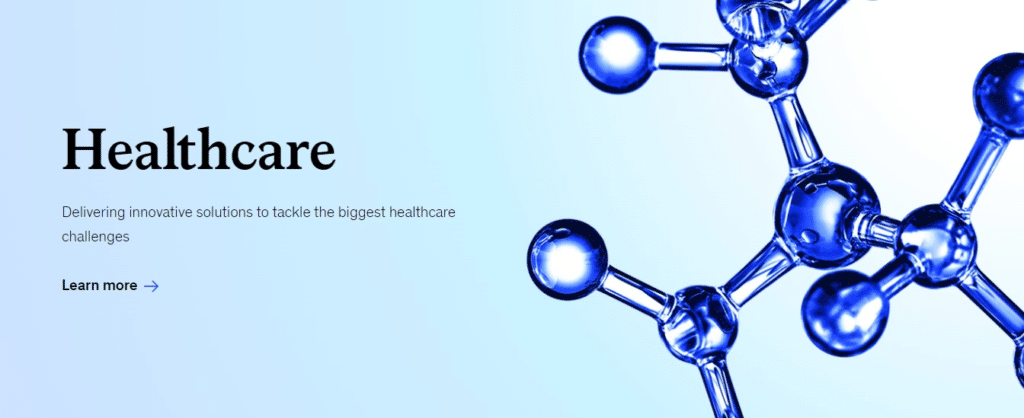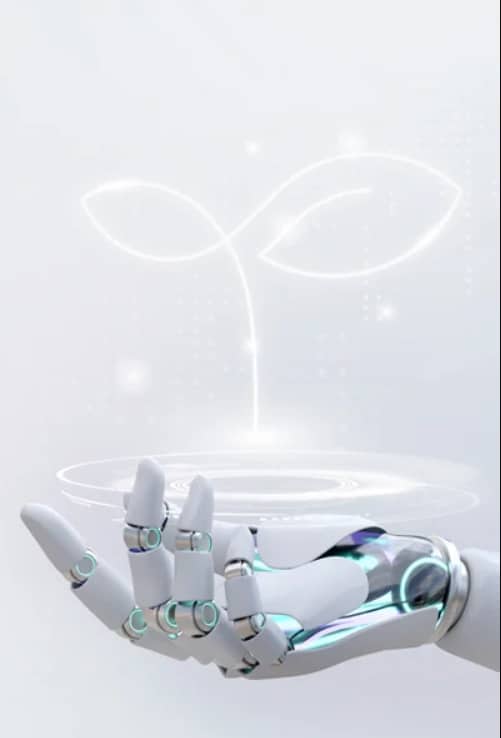There are Best Tech Jobs In Healthcare that have been considered to be important and innovative in the ever-evolving healthcare landscape. Data analysts assume a vital position in such a process by pooling patient’s related data which may contribute towards enhancing outcomes, optimizing operations, and informing policies. Health informaticists are individuals responsible for ensuring that healthcare is well integrated with technology systems through proper integration protocols.
Telemedicine specialists provide an essential service by enabling remote consultations thereby extending access to clinical care. Moreover, biomedical engineers oversee the development of modern medical apparatuses as they push the limits of healthcare technology.
Last but not least, AI experts use machine learning models to revolutionize diagnostics and therapeutics based on medical image analysis, disease prediction, and even personalized care planning for patients. These opportunities are just a taste of what one can gain at the intersection between health and technology; where innovation drives performance improvement in patients’ lives.
Best 10 Tech Jobs In Healthcare
- Medical records technician
- Health information technician
- Clinical informatics specialist
- Healthcare IT consultant
- Health IT security specialist
- Health information clerk
- Healthtech software engineer
- Healthcare data analyst
- Radiologic technologist
- Healthcare business analyst
Best Tech Jobs In Healthcare
1. Medical records technician
Medical records technicians rank high among the best tech jobs in healthcare because their services are highly required. They have the responsibility for maintaining and organizing patient’s medical records so that they can be accurate, confidential and available when needed.
In line with the increasing digitization of health systems, their role encompasses maintaining electronic health records (EHRs) and ensuring compliance to regulatory standards like HIPAA. Medical records technicians need a combination of technical expertise such as proficiency in EHR software, data management and knowledge of medical language and coding.
Their carefulness about details enable health care providers to deliver quality care by ensuring that relevant information about patients is ever accessible at any time it may be demanded. The healthcare sector continues utilizing technology to streamline its operations hence it will require more skilled medical records technicians; hence making it one of the best careers in healthcare tech industry.
2. Health information technician
Their role makes them among the top healthcare technology jobs as medical records technicians. Health information technicians are responsible for ensuring that data is accurate, available and secure by managing and organizing health information.
In an increasingly digitalized healthcare environment, health informatics professionals are key in maintaining EHRs as well as conforming to HIPAA regulatory standards. They have a range of unique technical skills including know-how about EHR software, medical coding and data management. Thus, they are able to provide easy access to health care providers
when it comes to checking patient information hence this improves patient care outcomes. As the focus on healthcare analytics and interoperability rise, there has been a growing demand for qualified health information technicians making it one of the best career paths in the field of healthcare technology today.
3. Clinical informatics specialist
Clinical informatics specialists are one of the most coveted tech jobs in healthcare, as they play a critical role in bridging the gap between caregivers and technology. They use their knowledge in healthcare and information technology to optimize the application of electronic health records (EHRs) and other digital tools in clinical settings.
Responsibilities include designing, implementing, and maintaining systems that enhance patient care, streamlining workflow, as well as ensuring industry compliance. In collaboration with healthcare teams, clinical informatics specialists review data for trends and formulate strategies on how best to improve delivery of health care.
Acting as an interface between medical practitioners, administrators and IT staff this set of professionals enhances operational efficiency while at the same time fostering innovative thinking within medical setting. The demand for experienced clinical informatics professionals will rise even more in coming years as healthcare systems continue changing towards sophisticated models therefore making it one of the exhilarating launching pad for career development in health IT.
4. Healthcare IT consultant
The healthcare industry is one of the most important sectors, and expertise in this field has become very valuable. Healthcare IT consultants are some of the most sought-after tech professionals in the healthcare sector because they come with their know-how on how to implement as well as optimize technological solutions that can improve patient care and operational efficiency.
This job comprises evaluating IT infrastructure health care, identifying areas for improvement, making recommendations, and then tailoring words to fit into such gaps. In close collaboration with healthcare providers, administrators as well as IT teams, therefore these individuals make sure systems meet regulatory requirements; enhance data security; and effectively support clinical workflows.

These experts have a deep understanding of such things as telemedicine platforms, and electronic health records (EHRs) alongside data analytics tools which matter much in regard to the modern complexities of healthcare technology. As healthcare increasingly relies on digital solutions,
There will be an even greater need for skilled people who understand both technology and medicine. Thus, it is a promising path for those considering combining knowledge plus skills from two seemingly unrelated fields: technology and healthcare.
5. Health IT security specialist
Health IT security experts are at the forefront of protecting sensitive medical information in the ever-changing environment of health technology, and so their role is one of the top tech jobs in the field. They are in charge of safeguarding electronic health records (EHRs), patient data and other private information from online threats and unauthorized access.
What they mostly do is identify weaknesses in IT systems, implement safety guidelines as well as procedures and ensure compliance with rules like HIPAA. Working alongside healthcare givers as well as IT teams, risks are assessed as these professionals come up with policies governing security matters and respond to security breaches with immediacy.
The increasing occurrence plus complexity of cyber attacks on healthcare have led to high demand for experts in health-related IT security resulting into lucrative career paths for individuals who love technology and treating patients’ privacy with respect.
6. Health information clerk
Health information clerks play a vital role in keeping and arranging of medical records, which is the basic level jobs for tech workers in health profession. Their work involves making sure that all the details entered are correct and updated whenever there is need by practitioners.
They do things such as entering data, coding, checking to see whether medical records are complete or accurate enough. Conversely, unlike other technical occupations in healthcare, they may not require high levels of expertise but they must be knowledgeable on how to use electronic health records (EHR) systems as well as other software used in managing patients’ information.
They exist as the connecting pillar between clients, medics and other administrative personnel within a health facility thereby enabling free exchange of information among them throughout their services provision period. The changing nature of healthcare delivery towards digital systems has led to consistent demand for skilled health information clerks thus making it one of the key entry-level positions for individuals interested in a career in healthcare technology.
7. Healthtech software engineer
Healthtech software engineers are pioneers in medical technology innovation, that is why their job is among the best tech jobs in this field. They create and maintain software solutions that change how patients are cared for, enhance workflows and boost healthcare results.
These engineers marry their knowledge of software development with strong understanding on healthcare practices and regulations to develop applications tailored for health care providers and patients alike. The future of healthcare provision significantly depends on healthtech software engineers who may be working on electronic health records (EHR) systems, telemedicine platforms or medical imaging software.
Their work has a direct effect on the efficiency, precision, and accessibility of healthcare services leading to better patient experiences and outcomes. The pace at which technology is advancing in healthcare demands more skilled healthtech software engineers as it continues to become an interesting career path with lots of rewards for those who love both technology and medicine.
8. Healthcare data analyst
Their role makes healthcare data analysts one of the best tech jobs in healthcare because it assists in leveraging information towards insights and improving patient care. They gather, process, and interpret huge amounts of health data to find out trends, patterns, and opportunities for betterment.
These professionals provide actionable insights that help optimize healthcare processes, cut costs as well as improve patient outcomes. Healthcare data analysts also possess a combination of technical abilities including knowledge in statistical methods, data analysis tools, and healthcare terminology.
Their work helps organizations such as predicting disease outbreaks, optimizing treatment protocols and identifying areas for quality improvement make informed decisions. The demand for skilled healthcare data analysts is rising due to the increasing digitization of healthcare records and an emphasis on data-driven decision-making making it an interesting career path within health IT industry.
9. Radiologic technologist
Radiographers are very important in health care because they work with high-technology imaging equipment to produce medical diagnostic images that doctors use to identify and treat diseases. Although not generally perceived as technology jobs, radiologic technologists are vital when it comes to the technological integration in healthcare systems.
They deploy X-rays, CT scans, MRIs, etc., to produce sharp photographs that are safe for patients. Radiographers also help during some procedures, give personal support, and maintain tools.
For better medical attention provision, radiologic technologists must always be up to date on the newest apparatuses and procedures used in medical imaging technology. They have a role that includes both technical knowledge and dealing with patients thereby making it an enjoyable job within the ambit of health sector.
10. Healthcare business analyst
The role of healthcare business analysts is one of the best technology jobs in healthcare because they help make their organizations more efficient and effective through data-driven insights and solutions. They are situated at the nexus of business and technology, analyzing healthcare data, procedures, and infrastructures to identify any areas that can be improved or optimized.
In this regard, therefore, healthcare business analysts collaborate with other stakeholders in different departments so as to understand their needs before converting them into actionable requirements for technology solutions. They can streamline operations to reduce costs and improve patient care quality by employing their skills in numbers analysis, project management and compliance with health care standards.
Technological application and information are critical to strategic decision making as well as innovation in health facilities which makes it important for health care business analysts who have specialized knowledge. With the current increasing focus on value-based care as well as digitization of healthcare, demand has been rising for highly competent healthcare business analysts thus providing an interesting career path towards technological aspects of healthcare.
Is healthcare technology a good career path for you?
The most important thing that unites the best healthcare technology professionals is a desire to enhance the quality of care given to patients. Even if one deals with technological aspects and does not come into contact with patients directly, it is significant to understand how your occupation influences health care delivery and in turn, lives of patients.
Besides being compassionate and wanting to help others, some attributes can make for a successful career in healthtech:
Knowledge in medical jargon. There are some health jobs that require you knowing medical terms. That’s why many Health IT pros have worked in healthcare before such as registered nurses.
Technical skills. Depending on the job, programming, coding or system infrastructure might be used among other skills. For instance, some positions like healthtech software engineer require high level computer literacy.
Teamwork capability. Most careers in healthcare tech usually involve working together with others. For example, a medical records technician will cooperate with healthcare providers while a healthtech software engineer will work alongside programmers. One must communicate effectively with all team members therefore.
Attention-to-detail oriented persons are required by many healthtech jobs which involve handling sensitive patient data such as medical records. This ensures nothing falls through the cracks thereby ensuring patient safety.
Good written and oral communication skills are essential in many roles within healthtech world for instance an IT consultant or security expert in healthcare may be asked to teach healthcare professionals how they could use healthtech software or ensure privacy of patient data?
Best degrees for healthcare technology
Different interests and future career ambitions determine the different degrees which can be taken for a healthcare technology career. Below are some best degrees.
Information Technology in Health: This degree program prepares learners to work in both the medical and computer industries. It covers topics like electronic health records (EHR), health data management, healthcare systems analysis, and healthcare information security.
Biomedical Engineering: Biomedical engineering is concerned with applying engineering principles to medical technologies and healthcare services. This course teaches students about designing medical devices, biomechanics, biomaterials, and medical imaging techniques.
Computer Science/Software Engineering: A degree in computer science or software engineering provides important skills for crafting software applications as well as developing databases and algorithms applied in medicine. Artificial intelligence specialization, machine learning concentrations, or data science minor may increase the value of your program.
Healthcare Administration/Management: Achieving business goals for implementation of technology necessitates an understanding of the administrative side of healthcare. A degree in Healthcare administration or management may provide insights into policy development, operations management as well as strategic planning in the health sector.
Nursing Informatics: If you have nursing experience but want to immerse yourself in information systems dealing with patients’ care delivery through technological means, a Bachelor’s degree can help you become a nurse informaticist who combines knowledge about nursing with expertise on IT solutions.
Health Data Science/Analytics: Due to increased demand for evidence-based decision-making across all areas within the sector of health care delivery system there has been high demand for programs offering degrees such as health analytics &bioinformatics that focus on statistical analysis using R programming language and other tools including SAS software package etc., aimed at predicting outcomes based upon past trends found among large volumes datasets collected from patient EMR/EHR records among others studies
Telemedicine/Telehealth: Some schools offer telemedicine programs aimed specifically at training people how to use remote patient monitoring devices like ones used during virtual consultations or other telecommunications technologies.
Bioinformatics: Combining biology, computer science, and information technology, bioinformatics enables the interpretation of biological data such as genomic sequences that have become important in personalized medicine and genomics research.
Conclusion
To wrap up, the healthcare industry has numerous fulfilling computing jobs that are crucial in realizing quality care as well as advancing medicine. Some of these workers include medical information clerks and health care systems software programmers; they play significant roles such as making patients better, making work easier, and technology improvement.
These computer jobs involve combining technical knowhow with sound practices to manage electronic records, keep patient data confidential, examine healthcare trends or create new software for medical procedures.
Consequently, there will be an increasing need for health tech experts as the healthcare landscape changes through digitization. Besides being full of exciting opportunities for personal and professional growths, this is an excellent path to follow since it can help one change lives of sick people and make a mark on the overall healthcare industry today.
FAQ
What qualifications do I need for a tech job in healthcare?
Qualifications vary depending on the specific role, but generally, a degree in a relevant field such as health information management, computer science, or healthcare administration is required. Certifications may also be beneficial, such as Certified Health Data Analyst (CHDA) for data analysts or Certified Professional in Healthcare Information and Management Systems (CPHIMS) for IT consultants.
What skills are important for tech jobs in healthcare?
Essential skills for tech jobs in healthcare include proficiency in relevant software and technology tools, knowledge of healthcare regulations such as HIPAA, strong analytical and problem-solving abilities, communication skills, and attention to detail. Additionally, roles may require specialized skills such as medical coding for health information technicians or expertise in data analysis for healthcare data analysts.
What does a typical day look like for someone in a tech job in healthcare?
A typical day varies depending on the specific role but may include tasks such as managing electronic health records, analyzing healthcare data to identify trends and insights, implementing and maintaining technology systems, ensuring data security and compliance, collaborating with healthcare providers and administrators, and providing technical support as needed.
What is the outlook for tech jobs in healthcare?
The outlook for tech jobs in healthcare is promising, with growing demand driven by factors such as the increasing digitization of healthcare systems, the emphasis on data-driven decision-making, and the need for advanced technology to support patient care. According to the U.S. Bureau of Labor Statistics, employment of healthcare occupations is projected to grow 15 percent from 2019 to 2029, much faster than the average for all occupations.
How can I get started in a tech career in healthcare?
To start a tech career in healthcare, consider obtaining relevant education and certifications, gaining experience through internships or entry-level positions, and staying updated on the latest trends and technologies in both healthcare and IT. Networking with professionals in the field and participating in industry events or conferences can also be beneficial for career advancement.









